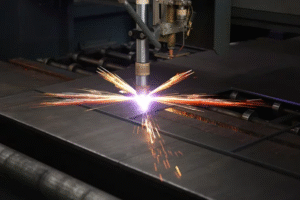As you consider investing in solar energy for your New Jersey home or business, one of the most crucial questions on your mind is likely: how much does solar cost in New Jersey? At Solar by Omar, we understand the importance of having a clear understanding of the costs involved in making this vision a reality. In this article, we’ll delve into the various factors that influence the cost of solar energy in the Garden State, helping you make an informed decision for your renewable energy needs.
The Cost of Solar Energy in New Jersey: A Breakdown
The cost of solar energy in New Jersey is determined by several factors, including the system size, type of panels, installation company, and financing options. A typical residential solar panel system in New Jersey can cost anywhere from $15,000 to $30,000 or more, depending on the system size and complexity.
Solar Panel System Sizes and Costs
System size plays a significant role in determining the cost of solar energy in New Jersey. A smaller system, typically ranging from 2 kW to 5 kW, can cost between $3,000 to $10,000. Medium-sized systems, usually between 5 kW to 10 kW, cost between $10,000 to $20,000. Larger systems, often greater than 10 kW, can cost $20,000 to $30,000 or more.
Incentives and Rebates: A Financial Boost
New Jersey offers various incentives and rebates to encourage the adoption of solar energy. The New Jersey Clean Energy Program (NJCEP) offers rebates of up to $1.50 per watt for residential solar panel systems. Additionally, the state’s Solar Renewable Energy Certificate (SREC) program provides an opportunity for solar panel owners to earn credits for each megawatt-hour of solar energy generated.
The Impact of Financing Options
Financing options can significantly influence the upfront cost of solar energy in New Jersey. Leasing solar panels, for example, allows homeowners and businesses to benefit from solar energy without the high upfront cost. This option usually involves a monthly payment, which can be lower than traditional loan payments.
Solar Panel Types and Costs
The type of solar panels used for a system can also impact the cost. Monocrystalline panels, generally considered high-efficiency, tend to be more expensive than polycrystalline panels. Thin-film panels, on the other hand, are often the most affordable option.
Incorporating Solar Energy into Your Home or Business
Solar energy can be integrated into your home or business in various ways. Residential solar panel systems can be installed on rooftops or in open spaces, while commercial systems are often installed on flat or tilted rooftops. Ground-mounted systems can also be an option for those with sufficient land.
Solar Energy for New Jersey Homes and Businesses
Solar energy can benefit both residential and commercial properties in New Jersey. Homeowners can enjoy significant energy savings, increased property values, and a reduced carbon footprint. Businesses, on the other hand, can benefit from reduced energy costs, enhanced sustainability credentials, and competitive advantages in a rapidly changing market.
Conclusion: Solar Energy in New Jersey’s Future
As New Jersey continues to transition towards a cleaner, more sustainable energy future, the demand for solar energy is expected to increase. By understanding the factors that influence the cost of solar energy in New Jersey, homeowners and businesses can make informed decisions about their renewable energy needs. At Solar by Omar, we’re committed to helping New Jersey residents and businesses harness the power of solar energy, reducing their environmental footprint, and reaping the rewards of this valuable investment.



